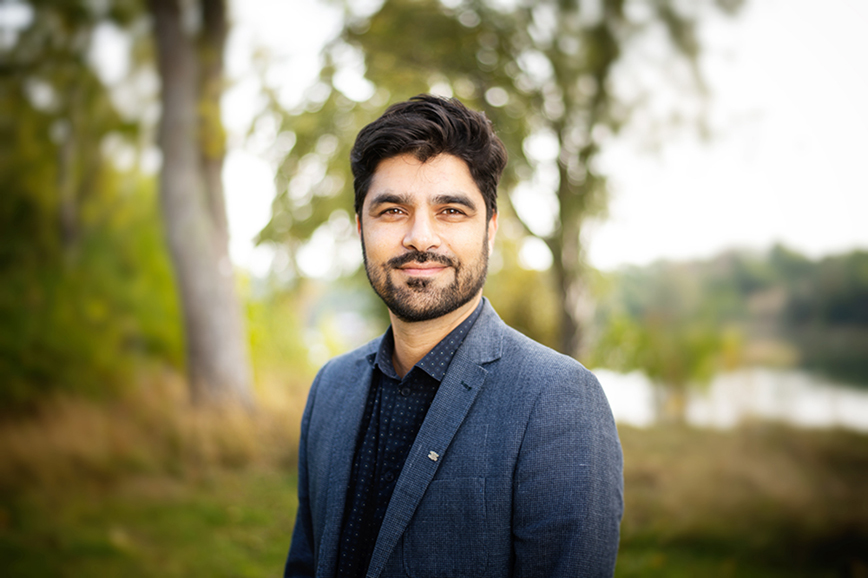Flow research for an energy-efficient future

Shervin Bagheri is conducting research into how flowing fluids and gases interact with surfaces and materials. He now has funding from ERC Consolidator Grants 2023 to study what are known as self-lubricating surfaces. The aim is to increase energy efficiency in a range of areas.
The research intends to lay the scientific foundation for developing sophisticated, energy-efficient surface materials for applications in areas such as healthcare and environmental engineering.
Self-lubricating surfaces are regarded as groundbreaking technology with a wide range of applications, partly because they resist dirt more easily, reduce water resistance and offer better heat transfer.
Shervin Bagheri , Professor of Fluid Mechanics at KTH, will use calculations and experiments as part of the LUBFLOW project to explore the impact on self-lubricating surfaces when subjected to realistic conditions: being submerged in tough flow environments – heavily flowing fluids.
“The surfaces are highly functional and have great potential to help reduce energy consumption in several sectors. But in realistic flow environments with turbulence, particles and organisms, they behave in an unpredictable, uncontrolled manner,” says Bagheri.
By mapping stability and exploring new functions, the researchers aim to enhance their understanding of the interaction between surfaces and flowing fluids. In the longer term, the hope is to use this newfound knowledge to be able to create new, customised surface materials with minimised energy consumption.
Bagheri mentions a few examples for use in biomedical equipment, the marine industry and food processing:
“In medicine and food processing, huge resources go into cleaning materials as microorganisms grow so rapidly on surfaces. Most cargo ships have growth-covered hulls, which can double fuel consumption. In theory, self-lubricating surfaces can solve a lot of these problems, but they’re not yet stable in real-life environments with heavy fluid flows.”
Bagheri has been awarded €2 million of funding over five years by the European Research Council, ERC, for the research project.
“This is an important acknowledgement of my research group, and recognition of the fact that we’re asking important research questions. With the ERC grant, we will be able to help establish this growing field of research, looking into how complex flows interact with sophisticated materials.”
Text: Christer Gummeson
